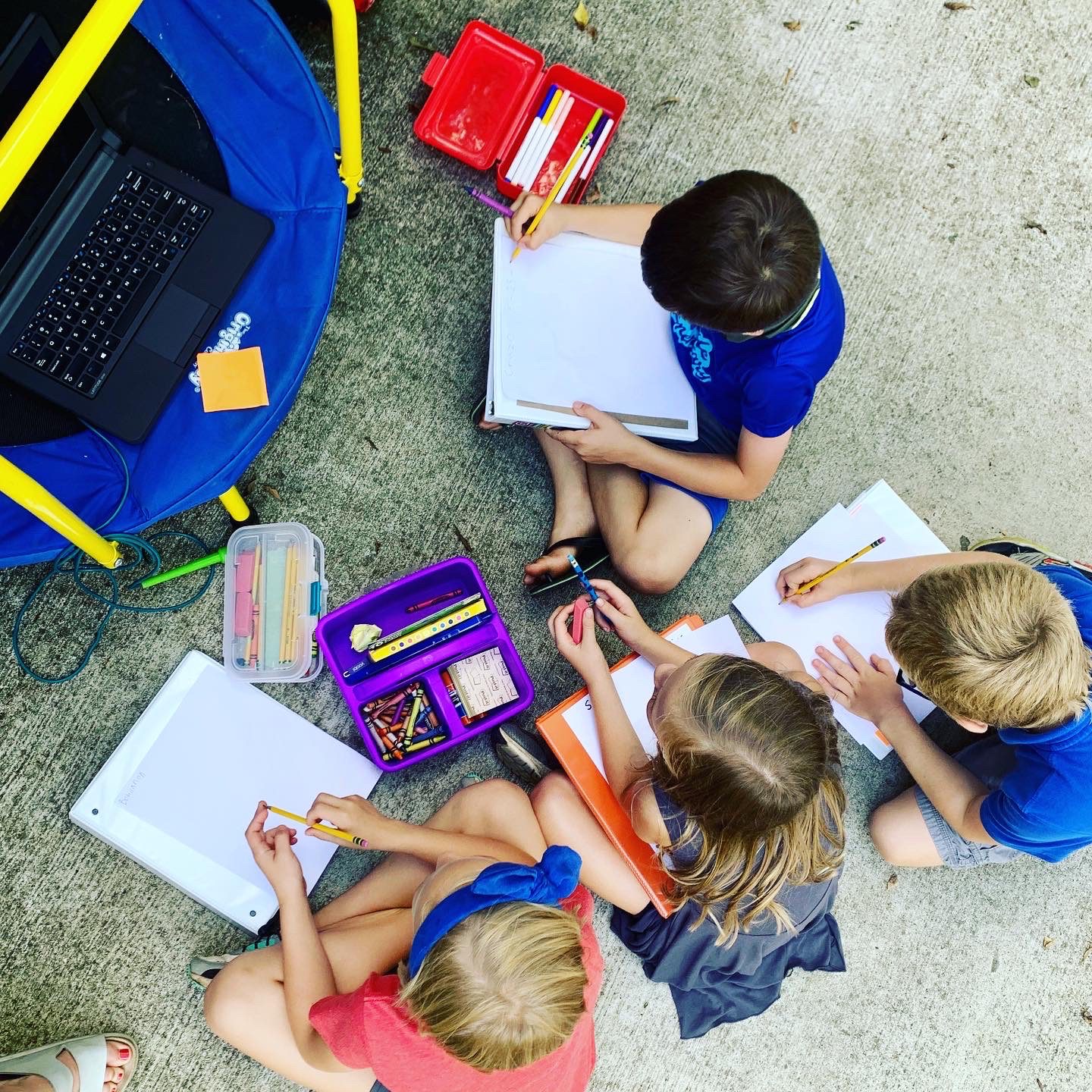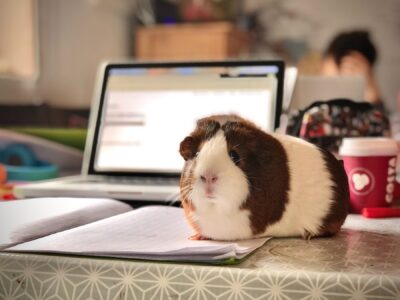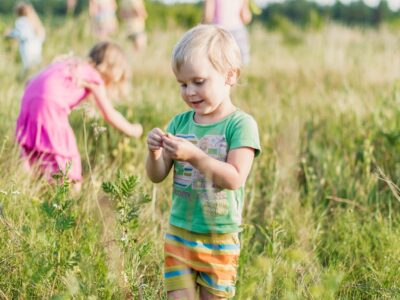We’re going back to school a billion different ways this year proving necessity truly is the mother of invention. Whether we’re homeschooling or pod learning or masking up for a return to the classroom, you can bet we’re not doing it like we used to and we’re all trying to figure it out. How do we do what’s best for our children, our neighbors, our community, while paying the bills, keeping our jobs and keeping our sanity too? These are the questions GRAMMY-nominated songwriter Alissa Moreno was asking herself when she decided to turn her home into a classroom for more than just her own children. We got with Moreno on how she went from the recording studio to chalkboard and brought a tiny community with her.
“I feel like I’ve found my second calling,” says the mother of two, soon to be three, who is now heading up a very holistic neighborhood pod consisting of four kindergarteners and four second graders, including her son Ryman. She recalls the beginning of lockdown, “At first we were fine, we learned to tie shoes and build forts and skateboard and raise chickens, we painted every wall, landscaped, it was a good life; we started cooking homemade food instead of having frozen pizza and then it was like, how are we gonna catch up or keep up?” When Metro Nashville Public Schools announced they would be going back to school remotely, Moreno says “I realized there was no way we were going to be able to do 4.5 hours of online and personal work a day in our regular household the way things were going, it just would not make sense. We didn’t do any schooling in quarantining. Our teacher has three children of her own at home…” Everyone was scrambling.
Moreno’s husband, Jason Oschwald, owns an independent music promotion company as well as a music venue. With the concert industry on hold, he and Moreno set about converting their garage into a classroom, installing AC and adding a storage shed behind their house. They bought hotel grade air filters, UV-C sanitizing wands and restaurant heaters for when the colder days come. Then Moreno started making calls. “I called a series of kids I had heard Ryman mention — if he’s mentioned these kids, they have some sort of influence on him. And I called one total stranger who would basically become our Dean if I’m the Principal, because I knew she had a girl, and I knew we’d need some girls in our mix. She ended up being the perfect personality.” Moreno’s “Dean of Students” is a mother of four who always wanted to homeschool, but couldn’t find the time between finishing school and heading up operations at her husband’s marketing firm.

Other parents are involved, including Moreno’s who are both retired elementary education teachers. “Everyone’s related, no one is in a different pod, because we’re a germ pod too, we’re all quarantining together and basically trying to reduce our points of contact. Eight kids is really only five families and each family has the same level of visiting with grandparents and if they do, they quarantine, they’re not out on other playdates.” Moreno devised a smart and simple system to finance the pod. “Each parent pays, myself included, into a collective pot, $6 an hour per child and then we pay each other out that same way for our shifts. So we’re offsetting our costs by volunteering with the children.”
Moreno says if the group stays intact after Labor Day, the parents have agreed that the hosts should no longer pay to participate. “We kind of just wanted to test the model first and make sure everybody is on board.” She says the pod may change if school reopens, but she’s not sending Ryman back anytime soon. “We’re trying to not be in a pandemic, but we’re in a pandemic.” Besides, they’ve already got a great rhythm down between the school’s virtual curriculum and Moreno’s additions. “All our kids come in at 7:40am and they have 20 minutes to prep at their station and then they’re online with their individual teachers with headphones and a laptop from 8am till 11:55am. We weave in breaks with recess and outside snacks. The kindergartners have a longer break so they do one of their classes outside.” Upstairs, Oschwald tag teams caring for their 2-year-old, McCrae, while keeping the lights on remotely at Big Spring Entertainment, and he’s on call for tech support should the kids need it.
In the afternoons, the students follow an adventurous schedule including read-alouds by the campfire, cleaning out the chicken coop, climbing trees, and helming a “pirate ship” across the creek. Moreno also offers more traditional extracurriculars like the Music Together from Princeton Lab School, PE, STEM, and even edible art. The kids walk to the school every day to pick up their free breakfast provided through grant funding and they make sure to pay into the lunch program for low-income students. “They love that, they play on that playground and feel like it’s still their school.” They even have a group mascot, an eastern box turtle named Boxer who lives by the creek. Boxer likes earthworms and next up, the kids will learn just how important those earthworms are.
Moreno says: “In the heart of quarantine, I began following High Garden’s “yardening” posts and harvesting bitter dock, dandelion and wild mulberries out of our yard and creek. We found a 73-year-old farmer who sells chicks and fits them with families based on needs and personalities. We got three lovely chickens with wonderful personalities and Ryman loves them like any pet. Two of them just started laying last week! Our Easter egger is the shyest, as we were told she would be, and hasn’t started laying yet, but her eggs will be blue and everyone is very excited about that. The children love picking food from the garden and munching on fresh cherry tomatoes all day. They pick greens and smell herbs and collect okra that we’ll cook for lunch.”
If this sounds magical, that’s because it is. Moreno says: “It makes what’s really weird and almost impossible, a lot more fun.” But fun is not all that’s happening at the Moreno’s house. They run a tight ship and take their work seriously. Their biggest goal? No homework. “We didn’t want people coming home in the middle of a pandemic – when stress levels are already at a 90 — having homework. We try to get that done at school so that peers can help each other. We’re seeing people who may struggle in a normal classroom thriving in this environment. It’s really enlightening.” The big downside? “We can’t invite more students.”





 Copyright
2024
Root and Vine
Copyright
2024
Root and Vine